
Julio César Turbay Ayala was a Colombian lawyer and politician who served as the 25th President of Colombia from 1978 to 1982. He also held the positions of Foreign Minister and Ambassador to the United States.
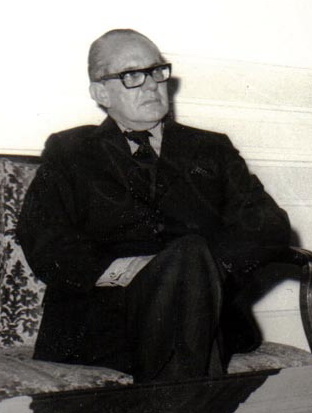
Alfonso López Michelsen was a Colombian politician and lawyer who served as the 24th President of Colombia from 1974 to 1978. He was nicknamed "El Pollo", a popular Colombian idiom for people with precocious careers.
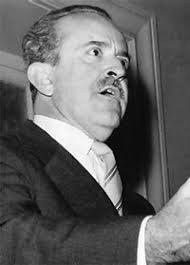
Guillermo León Valencia Muñoz was a Colombian politician, lawyer and diplomat who served as the 21st President of Colombia from 1962 to 1966.
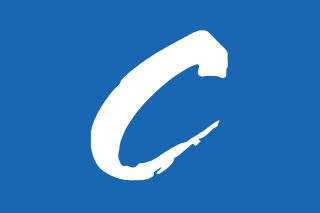
The Colombian Conservative Party is a conservative political party in Colombia. The party was formally established in 1849 by Mariano Ospina Rodríguez and José Eusebio Caro.
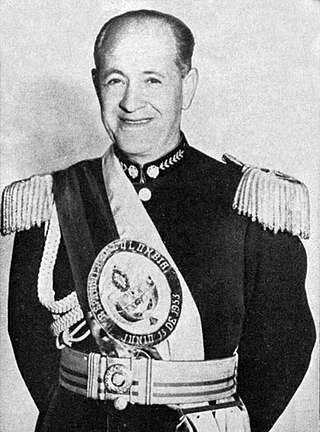
Gustavo Rojas Pinilla was a Colombian army general, civil engineer and politician who ruled as 19th President of Colombia in a military dictatorship from June 1953 to May 1957.
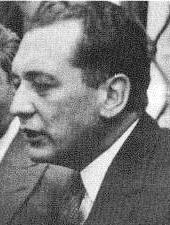
Laureano Eleuterio Gómez Castro was a Colombian politician and civil engineer who served as the 18th President of Colombia from 1950 to 1953. In November 1951 poor health led him to cede presidential power to Roberto Urdaneta Arbelaez. On 13 June 1953, when he tried to resume his presidency, he was overthrown in a military coup led by Gustavo Rojas Pinilla. During the three decades prior to being elected president, Gómez was a radical leader of the Conservative Party and is widely considered to be one of the most brilliant and potent orators of the Congress of Colombia. However, he remains a controversial figure because of his sympathy for authoritarian regimes and the dictatorial nature of his government.

Horacio Serpa Uribe was a Colombian lawyer, politician and Senator. Serpa ran as the Colombian Liberal Party candidate for President on three occasions; in 1998, 2002, and 2006. He previously served as congressman for Santander as Senator, Inspector General of Colombia, president of the National Constituent Assembly, Minister of the Interior, and as Ambassador to the Organization of American States. He was also involved in the 8000 process scandal in which money from the Cali Cartel entered the presidential campaign of Liberal candidate Ernesto Samper. In 2007 Serpa ran for the governorship of Santander Department and was elected on 28 October in the regional elections.
National Front was a period in the history of Colombia in which the two main political parties, the Liberal Party and the Conservative Party, agreed to rotate power, intercalating for a period of four presidential terms. The National Front Presidents were Alberto Lleras Camargo (Liberal), Guillermo León Valencia (Conservative), Carlos Lleras Restrepo (Liberal), and Misael Pastrana Borrero (Conservative).
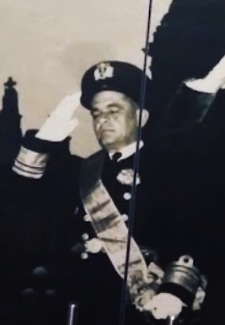
Gabriel París Gordillo was a Colombian military officer and political leader who ruled the country as the chairman of a military junta from May 1957 to August 1958, following the resignation of General Gustavo Rojas Pinilla. París oversaw the regime's transition to electoral democracy after four years of military dictatorship, and turned over power to Alberto Lleras Camargo of the National Front.
Roberto Urdaneta Arbeláez was a Colombian Conservative party politician and lawyer who served as President of Colombia from November 1951 until June 1953, while President Laureano Gómez was absent due to health issues.
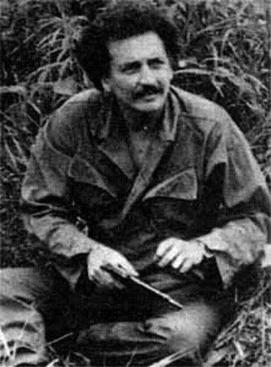
Jaime Alfonso Bateman Cayón, also known as "El flaco" or Comandante Pablo by his fellow guerrilleros, was a Colombian guerrilla leader and both founder and commander of the 19th of April guerrilla movement.
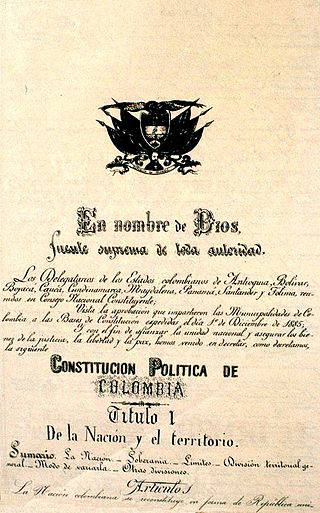
The Colombian Constitution of 1886 was the constitution that remade the United States of Colombia into the Republic of Colombia, and replaced the federal republic with a unitary state. Following the Civil War of 1884, a coalition of moderate Liberals and Conservatives, led by Rafael Nuñez, ended the political period known as "the Radical Olympus", repealed the Constitution of Rionegro (1863), and substituted it with the constitution of 1886. From then on, the country was officially known as the Republic of Colombia. The Constitution of 1886 was the longest lasting constitution in the history of Colombia, eventually being itself replaced by the Constitution of 1991.
Confederación Nacional del Trabajo was a central trade union confederation in Colombia. CNT was formed in 1953, with support from the military government of General Gustavo Rojas Pinilla. CNT was built up along the lines of the Argentinian peronista unions, and CNT was affiliated to the Agrupación de Trabajadores Latinoamericanos Sindicalistas. CNT received financial aid from ATLAS. Moreover, CNT received direct support from the Colombian Ministry of Labour through the minister Aurelio Caicedo Ayerbe. CNT was given access to issue propaganda through public radio stations.
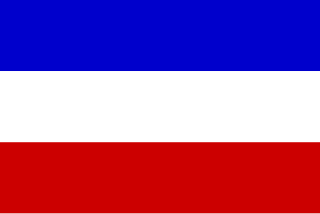
The National Popular Alliance or ANAPO was a political party in Colombia. It was founded in 1961 as a movement by the ex-president Gustavo Rojas Pinilla and was disbanded in 1998. Many ANAPO leaders and militants joined the Independent Democratic Pole coalition.
Presidential elections were held in Colombia on 4 May 1958. They were the first presidential elections since 1949, following a military coup against President Laureano Gómez in 1953. Following the coup, the two main parties came to an agreement on holding office for alternating periods of four years. The agreement, known as the National Front, was approved in a 1957 referendum.
Presidential elections were held in Colombia on 6 May 1962. Under the National Front agreement, it was the turn of the Conservative Party to govern. The result was a victory for Guillermo León Valencia

General elections were held in Colombia on 19 April 1970 to elect the president, the Senate and the Chamber of Representatives. It was the first time all three institutions had been elected on the same day, and was also the last election under the National Front agreement, which had restricted electoral participation to the Conservative Party and the Liberal Party, with each party allocated 50% of the seats in both houses, whilst the presidency alternated between the two parties. As a result, the main contest in parliamentary elections was between factions within each party, whilst only Conservative candidates ran for the presidency. The result was a victory for Misael Pastrana Borrero, who received 40.7% of the vote. However, supporters of Gustavo Rojas Pinilla claimed that the election had been rigged in favour of Pastrana. Rojas had also been supported by the Christian Social Democratic Party. The 19th of April Movement guerrillas traced their origins to this alleged fraud.

El Independiente was a Colombian newspaper that replaced El Espectador, when this newspaper suspended its publication due to a series of illegal actions committed against it by the military regime of Gustavo Rojas Pinilla in 1956.
Alfonso Uribe Misas was a Colombian lawyer, politician and writer. He was the son of José María Uribe Gaviria and Esther Misas Barrientos.

The first family of Colombia is the family of the president of Colombia, who is both head of state and head of government of Colombia. It is an unofficial title for the family of a republic's head of state. Members of the first family consist of the president, the First Lady of Colombia, and any of their children. However, other close relatives of the president and first spouse, such as parents, grandchildren, stepchildren, and in-laws, may be classified as members of the first family for context purposes. The first family of Colombia live in the presidential residence Casa de Nariño in Bogotá, Colombia.















